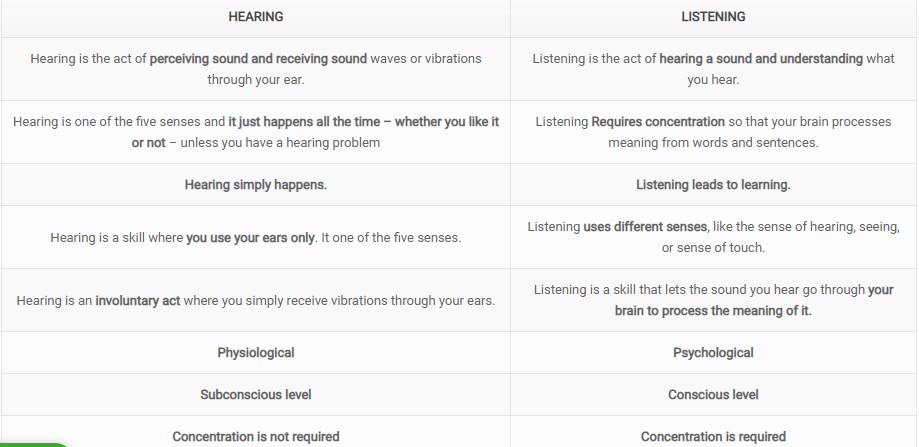7 TOP tips to boost your listening band score + 25 best resources • for IELTS exam • IIWI
The easiest is the greatest opportunity, only when you’re prepared perfectly for it!
If you’re in the Preparation IELTS test phase answer these two questions –
First, tell me, how good are you at understanding foreign accents?
Second, what’s your accuracy at following spoken instructions (of medium ‘n’ difficult level)?
If your answers are – not very comfortable OR not very accurate OR I don’t know the accuracy; then you’re not prepared for ielts exam. Most probably, with your current listening skill gap, you will score less than expected.
You can get a full 40 on the IELTS Listening test, PROVIDED, you prepare right!
7 things you need to do for the 40/40 golden score!
IELTS Listening is designed to measure your ability to understand conversation and lectures when you go abroad.
First off, to get a full 40, don’t look for shortcut tips and tricks.
Tips and tricks may fail you because you can’t fool an international language testing system. The testing system is always ahead of you. What you can do is catch up with it with an honest, accurate and smart preparation.
So, here are the 7 things for your 40 listening band score!

Tip 1: Know the Test
You can’t ace a test if you don’t know questions to expect. So familiarise yourself with the main aspects of IELTS Listening test.

You can’t ace a test if you don’t know what questions to expect. So familiarise yourself with the following aspects of the IELTS Listening test-
#1 What are the question types? (you require different strategies for different question types)
#2 What is the test format? (number of questions, question types, time allotted, etc)
#3 What is the right thing to do for each part of the test?
#4 What skills do I need?

Tip 2: Listen Actively
Active listening is a practice. It’s the skill to get the meaning correctly of what is spoken. But as simple as this sounds, it’s not that easy. You must have observed how sometimes because for no reason we understand something different from what the speaker actually said. Then the other person says, “Oh but this is not what I meant!” Most of the time, we are hearing things, not listening. Yes, hearing is different from listening!

When something is not interesting or academic, no matter what language, it can be difficult to follow the details and understand ALL details of the message. It often happens in classes of subjects we find boring. We hear the voice of the lecturer, but don’t get(register) what is being said.
Simply because our brain is not interested (or is not concentrating) on decoding the message of the voice.
So, it’s important to ACTIVELY LISTEN.
For high-score IELTS Listening you’ve got to get into a habit of paying attention to what is being said and how it is being said. When you hear a spoken message you need to concentrate on both verbal and non-verbal components.
2 components of Recorded Message (audio clips)
#1 Verbal component – words of the message.
#2 Non-verbal component – tone + pitch of voice + emotion/attitude/opinion reflected.

Tip 3: Practice to Perfection
Listen to English every day. This will regularise (habituate) your ears to the sounds, words, and sentences of English language. By and by, very slowly you will start understanding more and more meaning. In the beginning, many of my students say, “We can’t understand a word of what is being said.”
I tell them, “Just don’t worry. Keep listening and within a week you will start recognizing words and sentences and then understand the meaning.”
Listening is also a skill and it has to be developed. It takes time. Follow a Daily Listening Routine.

You will discover Listening to be great fun, also because you will come across a variety of thoughts, ideas, opinions, and experiences of people and characters from across the globe. That’s exactly the purpose. Listening to connect with others. I’m sure you’re going to enjoy your listening routine, and in fact, get addicted to it.
4 steps for Beginner IELTS Listening Practice
Step 1: Make listening to English a part of your daily life.
Step 2: Start with topics you are super interested in.
Step 3: Get onto academic material.
Step 4: Take up IELTS Listening Practise Tests
In about a month’s time, you will discover that now you can get the meaning of most part of what is you are listening to. Moreover, you won’t feel that afraid of foreign accents.
Once you get used to hearing English sounds (pronunciation, intonation, accent), you will get the confidence to manage your stress during the test.
I recommend you use the following listening resources.
🎯 25 Best Listening Resources for Listening Practice for IELTS test-takers
WEBSITES
✅ 365 ESL Short stories
✅ BBC Learning English
✅ English Listening Lesson Library Online
✅ Englishclub.com
✅ U.S.A Learns
✅ Listen A Minute
✅ Breaking News English
✅ TalkEnglish
✅ Voice of America
PODCASTS
✅ Stuff you should know
✅ Happy English Podcast
✅ You Are Not So Smart
✅ 99% Invisible
✅ Passenger List
RADIO STATIONS
✅ KQED Radio
✅ 93.4 FM (India)
✅ BBC Sounds
✅ WAMU (American University Radio)
STREAMING PLATFORMS
✅ Disney
✅ Amazon Prime Videos
✅ Ted Talks
✅ TedEx

Tip 4: Focus on keywords
A major part of the information of the spoken message is in the keywords.
It is only one time that the recording is played during the test. Time is allotted for you to read the instructions and questions before the recording is played.
I will suggest that in this pre-recording-play-time you underline the keywords when you read the questions. This way you get an idea about the context of the recording to be played (who will be speaking, what the topic is about etc).
4 Top Points to remember for answering Listening IELTS Test correctly
Point 1: Listen carefully so that you don’t miss keywords
Point 2: Keywords given in questions may not be used in the recordings but their synonyms, especially in multiple-choice questions.
Point 3: Try to focus on finding out what information the question is asking for. Try predicting it. (Think whether the answer is going to be a verb or a noun)
Point 4: Ensure that the final sentence made with your answer is grammatically correct.

Tip 5: Beware of distractors
Listening in IELTS is harder than it is in real life.
The IELTS Listening test is going to assess your skill at differentiating the wrong from the right answer in terms of comprehension of the recorded audio text. The answers are never going to be easily found. The correct answer will be mixed with distractors. So, watch out!
What are distractors in IELTS Listening?
A distractor is a choice or a word or a phrase that looks/sounds like the answer but is actually not the correct answer. It’s the ‘wrong choice’ included to test whether the student can differentiate the right answer from the incorrect answer.
Only one answer is correct and the rest are these ‘distractor wrong answers’ are there to induce you to make an error. Distractors are very cleverly designed and included in the text and answer choices. You must have a good amount of practice ad deeper knowledge distractors in IELTS Listening. (hyperlink)
4 Major Distractors in IELTS Listening – Watch out!
Distractor 1: Words/phrases that sound like the correct answers (explained above).
Distractor 2: Your eyes distract your ears.
imagine a situation where you are talking to someone and there is a TV right behind the person’s head. Your eyes can’t help but notice the screen again and again and soon you realize that you are not listening to what the person is saying to you. Exactly like this, if your eyes are busy observing something else while you are listening to the audio, your ‘listening concentration and efficiency will be reduced.
Distractor 3: Big words Sometimes you hear big difficult words you don’t understand, and you get scared and lose focus.
Distractor 4: The correct answer doesn’t come in the sentence /portion where you are expecting it to be.
Correct answers may come later in the audio. What you hear first may not be the right answer.
For example, the speaker may say one thing, but then change or cancel this answer later in the audio. Also, the speaker may mention all the options with slight differences in meaning. You’ve got to pay attention to details.
A simple Thumb rule to tackle distractors in IELTS Listening
If you’re able to understand how wrong answers are included in the audio, then you will be better at finding the correct answer by way of omitting wrong choices. That’s winning half the battle!

Tip 6: Don’t wait too long to hear the answer
If you’ve waited too long to hear the answer, it is likely that you’ve already missed it. A big advantage of the IELTS listening test is that you don’t need to go up and down the IELTS Listening answer sheet to answer the questions. The questions are all in sequence. So relax!

Tip 7: Transfer answers very carefully

Check 3 things – Transfer Answers – IELTS Listening
#1 take care with spelling and capitalization.
#2 if you’re unsure about the correct capitalization, you can write your answers in all capitals.
#3 take one last look at your answers to ensure they are grammatically accurate and that you’ve followed all instructions.
Conclusion
So, once you start applying these first 7 top tips for your IELTS Preparation of Listening Section, you will become good at the foundational level of giving the right answers. Your next step, hereafter should be a deep study of the IELTS Listening question types and strategies. You must have a Study Plan. Time management starts right from your first step of preparation. Create a study schedule and stick to it. It is one of the most powerful ways to improve your IELTS score. Where there’s a will, there’s a way! The right inputs, right approach, and right guidance will make IELTS Preparation easy for you.
Any small or big doubts, just pick up the phone and give me a call, or drop a comment.

Founder- IIWI Learning IELTS 8+ Coach, 30 yrs exp.|Author|Blogger


Leave a Reply